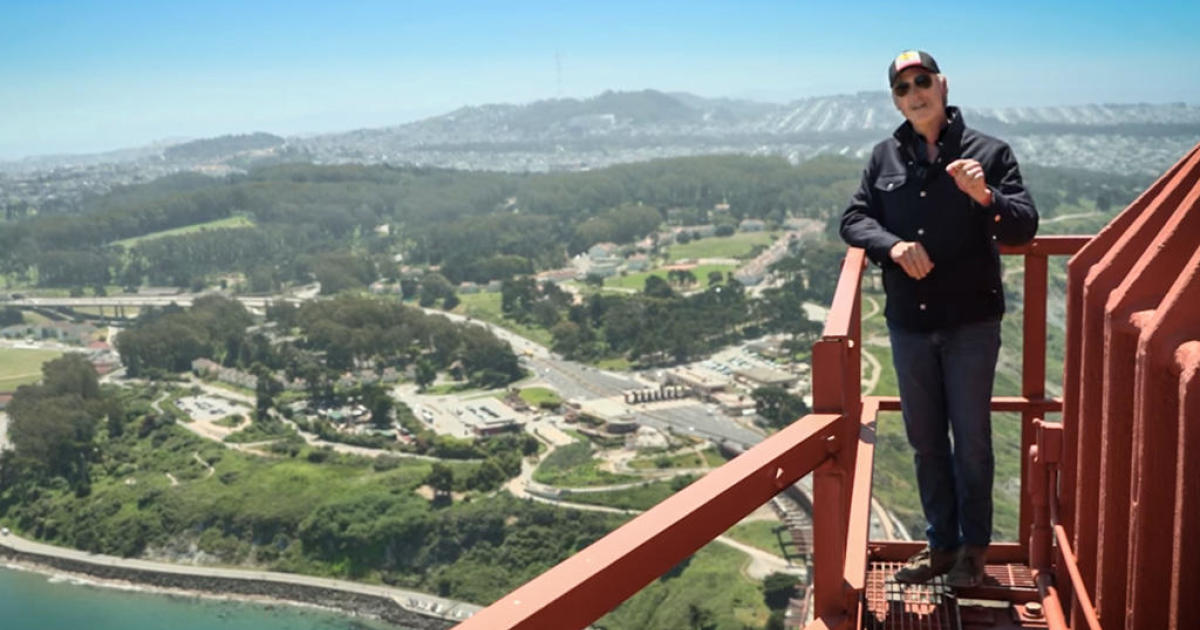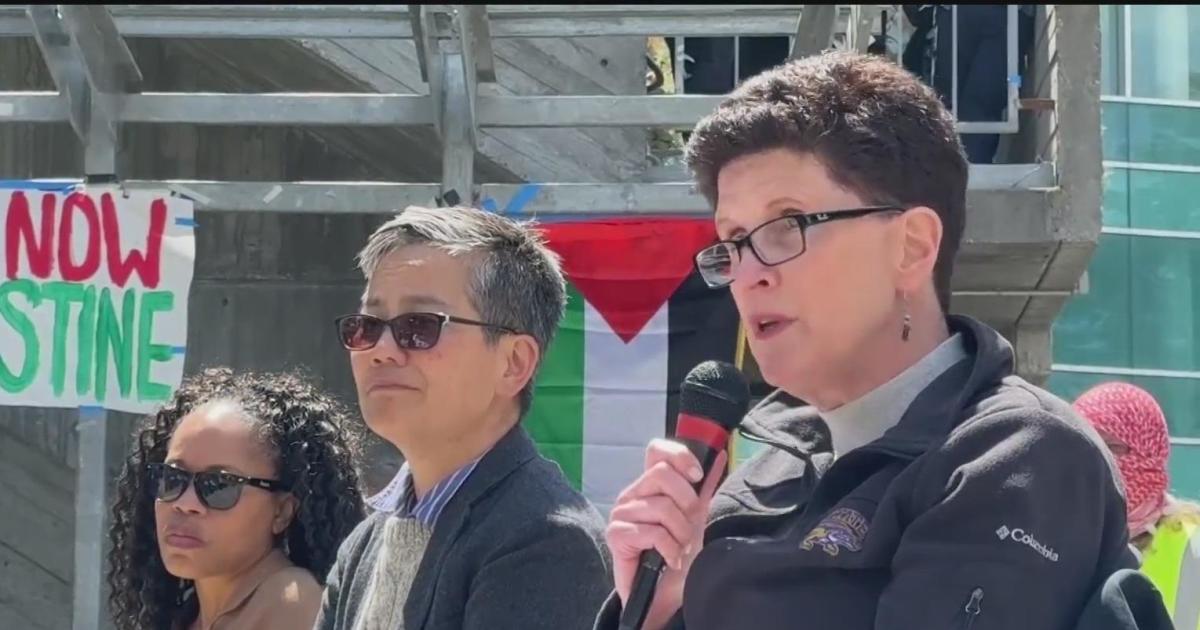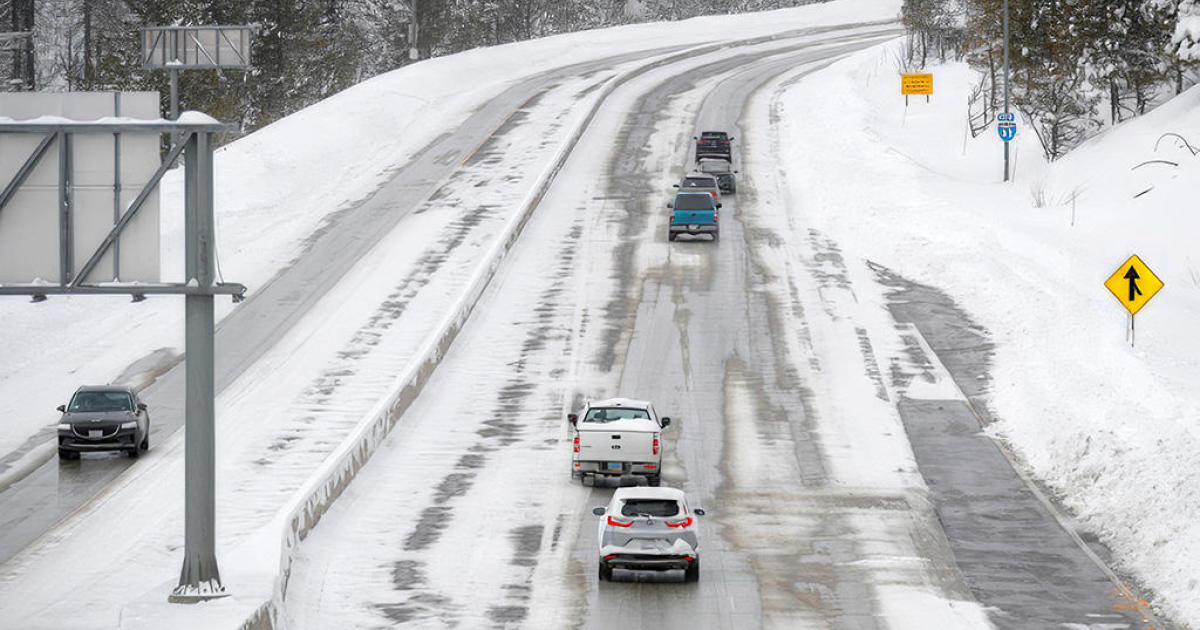Mask Mandates: Bay Area Health Officers Issue Criteria To Lift Indoor Masking Requirements
SAN FRANCISCO (CBS SF) -- Health officers for the nine Bay Area jurisdictions on Thursday announced a consensus on criteria needed to lift health orders requiring face coverings in most indoor public spaces.
Alameda, Contra Costa, Marin, Napa, San Francisco, San Mateo, Santa Clara, Sonoma, and the City of Berkeley will lift the indoor masking requirement in public spaces not subject to state and federal masking rules when all the following occur:
- The jurisdiction reaches the moderate (yellow) COVID-19 transmission tier, as defined by the Centers for Disease Control & Prevention (CDC), and remains there for at least three weeks; AND
- COVID-19 hospitalizations in the jurisdiction are low and stable, in the judgment of the health officer; AND
- 80% of the jurisdiction's total population is fully vaccinated with two doses of Pfizer or Moderna or one dose of Johnson & Johnson (booster doses not considered)
- Eight weeks have passed since a COVID-19 vaccine has been authorized for emergency use by federal and state authorities for 5- to 11-year-olds, who need the added protection of masks to keep case rates low so they can remain in school until they can be vaccinated.
As of Thursday, none of the eight counties is in the moderate transmission tier.
In addition, none has reached 80 percent vaccination among its full population, although Marin, San Francisco and Santa Clara counties have crested 70 percent.
"Indoor masking has helped to lower case counts, hospitalizations and COVID-19 deaths, so we don't want to remove this important layer of COVID prevention too hastily," Santa Clara County Health Officer Dr. Sara Cody said in a statement. "These regional metrics will help keep our community safe, and ensure that our case rates are low and stable, our hospitals are in good shape and vaccination rates are robust."
Bay Area health officers issued indoor masking requirements on August 3 after a surge in COVID cases, hospitalizations, and deaths fueled by the delta variant. Since then, regional data shows the surge has receded and the Bay Area is now one of the most vaccinated regions in the country.
The lifting of any indoor mask mandate would not prevent businesses, nonprofits, churches, or others with public indoor spaces from imposing their own requirements, the health officers said.
"Masks and vaccines together have protected residents of Alameda County and the Bay Area during the summer wave" said Dr. Nicholas Moss, Alameda County Health Officer. "While we expect COVID-19 and flu to circulate this winter, with more people well-protected from severe illness by vaccination we will be able to loosen mask requirements safely."
California's face mask guidance would remain in effect after local masking requirements are lifted, meaning that people who are not fully vaccinated for COVID-19 must continue to wear masks in businesses and indoor public spaces. California also requires people in health care facilities, on public transit, and at senior care facilities to wear masks regardless of vaccination status.
State masking guidelines for K-12 schools would also not be affected by changes to local health orders.
"Contra Costa is coming back strong, thanks to so many of our residents making healthy choices, such as getting vaccinated, or doing the courteous thing and wearing masks in places where the risk of transmission is a little higher," said Diane Burgis, chair of the Contra Costa County Board of Supervisors. "I'm thankful for every res1ident who has done their part."
"It is no accident that transmission is slowing in Sonoma County. Public health interventions, including the masking requirement, are working," said Dr. Sundari Mase, Sonoma County's health officer. "We believe that health orders, along with vaccination, outreach and education are all adding layers of protection against COVID-19 in our community – and saving lives."
San Francisco Mayor London Breed issued a statement Thursday saying that so long as case and hospitalization rates remain stable or declining, indoor masking requirements will be lifted on October 15 in settings where stable cohorts of fully vaccinated individuals gather, and where other safety measures are followed. The settings include offices, gyms, and fitness centers, employee commuter vehicles, religious gatherings, and indoor college classes or other organized gatherings of individuals who meet regularly, not exceeding 100 people.
ALSO READ: Mayor London Breed's statement on easing masking requirements in SF
The employer or host must also ensure proper ventilation, no recent COVID-19 outbreaks, and children under 12 and guests are not present, among other safety measures.
"I'm excited that we're once again at a place where we can begin easing the mask requirements, which is the direct result of the fact that we have one of the highest vaccination rates in the country, our cases have fallen, and our residents have done their part to keep themselves and those around them safe," said Breed. "This is an important step forward for San Francisco, particularly for our downtown, because when I talk to office workers and business leaders one of the things I continue to hear is that they're anxious to get back to a more normal routine at work where they can interact with their colleagues. Our economy is bouncing back, the city feels like it is coming alive again and this is yet another milestone in our recovery."
Dr. George Rutherford, a UCSF epidemiologist supports a slower approach to lifting any mask mandate.
"I think 'prudent and careful' are warranted in the face of what we saw last winter and in the face of the delta variant," Dr. Rutherford explained.
Marin County residents have differing views on when they'll be ready to ditch their masks.
"I would love to not put it off and on and off and on all the time," said Maryanne Gaines.
Maria Lau had a different perspective: "I think I would like to keep my mask on still," she said.
Dr. Rutherford says there is a respiratory virus going around now among kids called RSV. Getting hit with another illness then getting COVID can make recovery extremely difficult.
"You don't want to get this. This is in your control not to get this and that means being careful about maintaining social distance, wearing masks and, if you're eligible, getting your vaccine booster," Dr Rutherford said.
KPIX 5's Andrea Nakano contributed to this report



